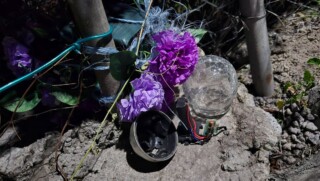Higher Utility Costs Ahead for Bonaire, Statia, and Saba as Subsidies End
THE HAGUE – Starting January 1, several subsidies for residents of Bonaire, Sint Eustatius, and Saba will end, including the energy allowance for people with a minimum income, as well as subsidies for electricity and drinking water. This means that households on the islands will face higher costs. According to State Secretary Szabó, monthly expenses will increase by at least forty dollars for electricity, six dollars for water, and 108 dollars for energy. These subsidies were initially introduced as temporary measures to help ease the cost of living alongside increases in the minimum wage.
The State Secretary noted that not all subsidies will be removed. For example, internet and phone allowances for households will remain in place in 2025, and funds will be allocated for public transportation. Additionally, the increase in the minimum wage and lower employer contributions will contribute to the purchasing power of residents.
To mitigate the negative effects of rising costs, the government is allocating an additional 9.5 million euros. A decision will be made in the spring on how best to use these funds, with special attention to those with a minimum income. These measures are expected to provide relief starting in the spring of 2025.
Savings for the Netherlands
The discontinuation of subsidies for electricity, drinking water, and the energy allowance in the Caribbean Netherlands starting January 1 is expected to result in savings for the Netherlands. While exact figures are not available, the available data provides an indication of the financial impact.
Energy Allowance: In 2022, a one-time energy allowance of 1,300 dollars was provided to households with an income up to 130 percent of the statutory minimum wage. This suggests that the energy allowance represented a significant financial burden.
Subsidies for Electricity and Drinking Water: In 2024, an additional 1.2 million euros was allocated from the purchasing power package for the Caribbean Netherlands to reduce drinking water rates on Bonaire, Sint Eustatius, and Saba.
Additionally, in 2023, the fixed costs for electricity network management (fixed charges) were fully subsidized, meaning consumers only paid the variable costs.
Although precise annual costs for these subsidies are not fully available, the mentioned figures suggest that discontinuing these subsidies will save the Netherlands several million euros annually. The exact savings amount depends on the specific amounts spent on these subsidies in previous years.










